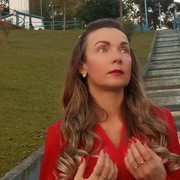

|
Thu24 Jul09:45am(15 mins)
|
Where:
537
Stream:
Presenter:
|

The film “Forbidden” is a biofiction based on the materials of the biography Ukrainian poet Vasyl Stus (1938-1985). This is a creative interpretation of the biography facts by screenwriters Serhiy Dzyuba and Artemiy Kirsanov and director Roman Brovko. The film is very important, because it contributes to the formation of the historical memory of Ukrainians, which is wrapped around the feeling of patriotism as “own” in the perspective of the concept “Ukrainian mentality”. The film created an artistic image of the poet — intellectual, unofficial, “acting”, “suffering”, strong. The atmosphere is chamber. The poet goes through a difficult path of trials: 1) the perspective of a successful scientific career — studying at the graduate school in Institute of Literature at Academy of Sciences; 2) exclusion from postgraduate studies; 3) forced physical work in low-skilled labor positions; 4) unemployment; 5) prison; 6) murder. The legal system reveals at different levels through the biofiction of Stus. Judges, lawyers, jailers, top management in the image of Colonel Vira are depicted. Paratextual ironic metaphoricality can be traced here. The Chapter 2 of the film “Court” highlights a fabricated case that completely destroys the law and justice. The authors of the film depict the absence of “law” in the second half twentieth century in the USSR. Judges and lawyers are discredited here. The court's decision was not voiced in the film in order to draw attention to the absolutely immoral conclusion: to be imprisoned and to pay a fine. The pathos of injustice, doom, causes a depressing atmosphere and a sharp response of the viewer, which fills the gaps in our historical memory. The viewer has only one emotion: horror, injustice, darkness!... In 2024, the viewer is still disgusted that this historical past threatens to return. During the trial, Vasyl Stus is portrayed as a strong, indomitable person who continues to resist. The last Chapter 3 of the film is called “Vira” (faith). The Colonel conducting the interrogation is Vіra. In the title of the Chapter, the name of the heroine, and events at the level of subtexts, references to humane Christian guidelines can be traced: truth, love, betrayal, the murder of Jesus Christ. In the collisions of the film, it turns out that Colonel had been following the poet from the very beginning of career. In the iconic metaphor “Vira” with the symbol subtext, the authors of the film introduce the idea: “faith” did not exist, it was impossible to “trust” the representatives of the authorities, whose job it was to “negotiate” and “take care” — behind these professional terms are murders and slanders, twists and forgeries. The thirst for power is the driving force for KGB officials. The film shows the jailers planning the murder of Stus. The authors metaphorically clarify the idea of wrongdoing: there is always deception in offers of “good” from system representatives.